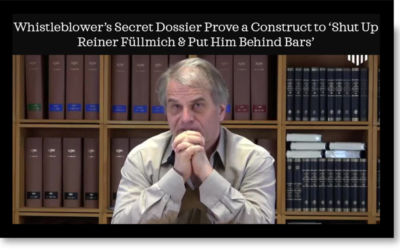October 30, 2020

Decades ago, the astronomer Carl Sagan observed that “extraordinary claims require extraordinary evidence.” These words are particularly salient today, as the world order has been upended by governments’ responses to the coronavirus.
Those who continue to advocate extreme measures, such as lockdowns and forced human separation, are making the extraordinary claim that we must disrupt the functioning of the traditions and institutions that societies have developed over millennia, and are vital to human flourishing, in response to a single problem: a pathogen with an infection fatality rate currently hovering around 0.27 percent, with deaths highly concentrated among those with very low life expectancies.
Never before have governments throughout the world ordered schools to close, businesses to stop operating, travel to cease, and people to refrain from interacting with each other, for an indefinite time period spanning months and possibly even years. As others have noted, this is an experiment of an unprecedented nature on an unprecedented scale, the consequences of which will undoubtedly ripple into subsequent decades and possibly beyond.
Given the extraordinary nature of the lockdown proponents’ proposition, one would expect the media, which plays the crucial role of intermediary between government officials and the public, to subject this idea to intense scrutiny. But to the contrary, the press, especially left-leaning publications, unequivocally and unquestioningly accepted this notion, not only absent extraordinary evidence, but absent any evidence at all either that these mechanisms would reduce coronavirus deaths or that the benefits of implementing them would outweigh their costs.
Having staked their reputations on a fiercely pro-lockdown ideology, it is perhaps no wonder that journalists, pundits and scientists worldwide have immediately and harshly decried proposals contained in the Great Barrington Declaration.
Underlying the Declaration, written by three of the world’s preeminent epidemiologists – Jayanta Bhattacharya, Sunetra Gupta, and Martin Kulldorff — and signed by 30,000 medical practitioners and 11,000 medical and public health scientists, is the acknowledgment that lockdowns inflict significant harm, especially upon children and younger adults.
As Kulldorff has stated, the Declaration recognizes that “you can’t just look at Covid, you have to look holistically at health and consider the collateral damage.” That stands in stark contrast to the public health responses to the virus so far. For this reason, the authors espouse a targeted approach (“Focused Protection”) that concentrates on protecting the vulnerable while allowing the rest of the population to lead relatively normal lives, sparing them the myriad deprivations that lockdowns entail.
Along with many others, including the Declaration’s framers, I have warned time and again that the damage, borne disproportionately by the poor, working class, and people of color, will almost certainly outweigh any benefits of extreme measures, especially as time goes on, since many of the consequences will take years to manifest.
To reiterate briefly, these costs include 130 million people facing starvation in developing countries due to supply chain disruptions around the world; denial of education for children, especially those from poor families who cannot afford tutors and laptops; 8 million more people forced into poverty in the United States alone; and rising depression, substance abuse and drug overdoses (I trust readers will see through the misattribution of these problems in many of the linked articles to the coronavirus, when in actuality they should be blamed on governmental responses to it).
Yet astonishingly, in their reactions to the Declaration, pundits with the world’s most influential platforms have entirely refused to recognize the overwhelming evidence that lockdowns are exceedingly damaging to individuals, families, communities, and nations. Instead, they focus on impugning the integrity of the scientists who framed it, accusing them of pernicious affiliations with right-wing extremists and with President Trump himself.
No piece exemplifies this maneuver better than economist Paul Krugman’s “Trump Tells Coronavirus, ‘I Surrender,’” which appeared on October 26 in the New York Times.
Initially, Krugman ludicrously refers to the Declaration as “a manifesto on behalf of herd immunity.” With the caveat that I have no education in science past high school, I have learned enough over the past seven months from epidemiologists, including the Declaration’s framers, to understand that herd immunity is a natural phenomenon. Krugman’s attempt at a slight is akin to calling Newton’s law a “manifesto on behalf of gravity” or Darwin’s Origin of Species a “manifesto on behalf of evolution.”
Natural phenomena do not need manifestos written on their behalf, because they simply exist. Gravity and evolution —and herd immunity — are not strategies; they are descriptions of reality. Furthermore, this fundamental misapprehension on Krugman’s part indicates that he has made no effort to understand the material he seeks to malign.
Krugman then tries to discredit the Declaration by claiming that it “grew out of a meeting at the American Institute for Economic Research [AIER]” which is “linked to the Charles Koch Institute.” Apart from a single $68,000 donation several years ago pertaining to an unrelated and offsite economics conference, AIER has no ties to Koch, and this lone and relatively small sum hardly makes AIER an operative of the institute.
Krugman’s next ploy is to cite two ostensibly offensive AIER pieces written by entirely different people, purportedly further evidence that the Great Barrington Declaration is unworthy of consideration. This is just another version of the aforementioned guilt by association campaign.
According to this logic, I should be able to cite two distasteful New York Times articles and rest my case against Krugman. But, as any litigator knows, engaging with the substance of an opponent’s arguments – rather than making unproven assertions and unwarranted insinuations — is the only valid method of debate.
In this spirit, it is important to note that Krugman has made no showing that the three scientists who wrote the Declaration, or the thousands of cosigners, are tied to AIER or were influenced by its ideology. But more critically, while smearing the scientists and accusing President Trump and one of his health advisors, Scott Atlas, of championing a policy of “letting the virus rip through the community” (which is a mischaracterization of the Declaration and Atlas’s stated position) Krugman at no point recognizes that there is a single cost to lockdowns, let alone the grave harm being inflicted, particularly on those less fortunate than Nobel Prize-winning economists writing for the New York Times.
Similarly, physician Dhruv Khullar, in a New Yorker piece entitled “How Trump Became the Pro-Infection Candidate” employs the same guilt by association tactic as Krugman: tying the Declaration to President Trump, a strategy designed to ensure that his readers never evaluate it with an open mind. Despite what Krugman, Khullar, and countless others hope their readers assume, that President Trump approves of or agrees with a concept is not prima facie proof of its unworthiness.
In any event, Trump has vacillated frequently over the past nine months with respect to how he believes the virus should be handled, and only recently become a proponent of targeted protection. This demonstrates that the Declaration’s purpose was not pandering to Trump or aligning with him, but that health advisors such as Atlas have made inroads by presenting scientific evidence from Bhattacharya, Gupta, Kulldorff and others to the administration.
In another unfair line of argumentation, Khullar acknowledges that “infectious disease specialists have signed” the Declaration, but then remarks that “many of its thousands of signatories are either unqualified or fake.” That the website was designed without foreseeing that the Declaration’s detractors would surreptitiously attempt to discredit its ideas by fraudulently signing it hardly bears upon the legitimacy of its recommendations. Moreover, this problem was immediately addressed and the tiny percentage of invalid signatures promptly removed, rendering the issue a red herring.
With respect to the crux of his article, however, Khullar declares that there are “two basic ways of looking at the coronavirus crisis. The first sees the minimization of death as a paramount goal; the second holds that significant death is inevitable and acceptable.”
This is a fundamentally flawed premise. Those of us who oppose extreme responses to the coronavirus do so because we recognize that these measures cause death and suffering, that lockdowns are ineffective at controlling the virus in the long term, and that the mass deaths predicted in the absence of harsh restrictions have been wildly off-base, as evidenced by countries such as Sweden and states such as Florida.
Unsurprisingly, just like Krugman, there is not one occasion on which Khullar acknowledges a single cost of lockdowns and massive societal disruption. Likewise, naturally, neither Krugman nor Khullar attempts even the slightest cost-benefit analysis. The refusal of Khullar, Krugman, and their ilk to grapple with this aspect of their favored policy and the eagerness with which they dismiss the Declaration, without engaging in any substantive analysis whatsoever, discredits their critiques.
Those genuinely interested in finding the best solutions to complex problems do not automatically react with vitriol, smears, and petty insults, but carefully contemplate the ideas in question. One might speculate that the flippancy with which Krugman, Khullar, and the other elite pundits dismiss the injury caused by lockdowns reflects the truth that for them – as opposed to the underprivileged – these measures are a mere inconvenience.









0 Comments